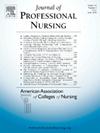Trauma-informed leadership strategies to improve baccalaureate nursing student engagement and well-being
IF 2.9
3区 医学
Q1 NURSING
引用次数: 0
Abstract
Trauma-informed leadership is a critical strategy in enhancing nursing student success by fostering a supportive and empowering educational environment. The inclusion of trauma-informed practices in nursing education emphasizes the importance of understanding this generation of students impacted by the COVID-19 pandemic and other potential traumas. Strategies for how trauma-informed leadership was implemented in a baccalaureate nursing program are detailed in this article. In an enhanced relationship-centered environment, opportunities were developed to build relationships and trust with students during scheduled faculty-student lunches, and open virtual hours in the evening with the program director. Through a senior-class art therapy project, students enjoyed the opportunity for creativity and healing. Supportive resources were provided to students, such as counseling and academic support specialists. However, the limitations of this approach include the need for ongoing faculty development and potential challenges in tailoring support to individual student needs. Despite these limitations, the trauma-informed leadership approach targeted student well-being, resilience, trust, and a sense of belonging. The implications for nursing educational practice underscore the necessity of adopting trauma-informed approaches to better prepare a resilient and engaged pipeline of nurses.
创伤知情的领导策略,以提高本科护理学生的参与和福祉
创伤知情的领导是提高护理学生成功的关键战略,通过培养一个支持性和授权的教育环境。在护理教育中纳入创伤知情实践,强调了了解受COVID-19大流行和其他潜在创伤影响的这一代学生的重要性。在这篇文章中详细介绍了创伤知情领导如何在本科护理课程中实施的策略。在一个增强的以关系为中心的环境中,在安排的师生午餐期间,开发了与学生建立关系和信任的机会,并在晚上与项目主任开放虚拟时间。通过高班的艺术治疗项目,学生们享受了创造和治愈的机会。为学生提供支持性资源,如咨询和学术支持专家。然而,这种方法的局限性包括需要持续的教师发展和针对个别学生需求量身定制支持的潜在挑战。尽管存在这些限制,创伤知情的领导方法针对的是学生的福祉、适应力、信任和归属感。对护理教育实践的影响强调了采用创伤知情方法的必要性,以更好地准备一个有弹性和参与的护士管道。
本文章由计算机程序翻译,如有差异,请以英文原文为准。
求助全文
约1分钟内获得全文
求助全文
来源期刊
CiteScore
4.80
自引率
8.00%
发文量
153
审稿时长
52 days
期刊介绍:
The Journal will accept articles that focus on baccalaureate and higher degree nursing education, educational research, policy related to education, and education and practice partnerships. Reports of original work, research, reviews, insightful descriptions, and policy papers focusing on baccalaureate and graduate nursing education will be published.

 求助内容:
求助内容: 应助结果提醒方式:
应助结果提醒方式:


